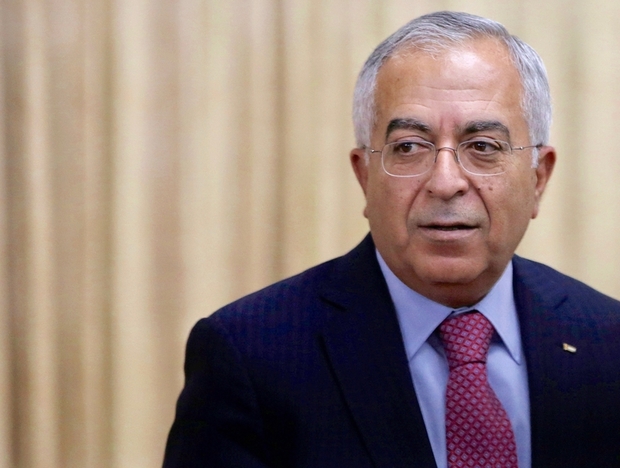UN Secretary-General Antonio Guterres on Saturday defended his choice of former Palestinian prime minister Salam Fayyad to be the UN peace envoy to Libya after the United States blocked the appointment.
The decision to put forward his candidacy “was solely based on Mr Fayyad’s recognized personal qualities and his competence for that position,” said UN spokesman Stephane Dujarric.
“United Nations staff serve strictly in their personal capacity. They do not represent any government or country,” he said.
Guterres had informed the Security Council on Wednesday of his intention to appoint Fayyad and set a deadline of Friday for members to raise objections.
Diplomats had said they expected the appointment to be approved, but US Ambassador Nikki Haley opposed it.
Haley said in a statement that the US did not “support the signal this appointment would send within the United Nations,” where the state of Palestine does not have full membership.
“For too long the UN has been unfairly biased in favor of the Palestinian Authority to the detriment of our allies in Israel,” she said in a statement.
Many in the diplomatic community interpreted this to mean Fayyad was rejected simply because he’s Palestinian, even though the post has nothing to do with Israel.
Former US ambassador to Israel Dan Shapiro deemed the move a “farce, ridiculous” and “stunningly dumb”, calling Fayyad “decent, smart, honest, ethical.”
Former Obama administration UN ambassador Susan Rice said the US statement was “ignorant, offensive, counterproductive”, adding that Fayyad is “first rate.”
The Palestinians were upgraded to non-member observer status at the United Nations in 2012.
Dujarric said no Israeli and no Palestinian had served in a high-level post at the UN and that “this is a situation that the secretary-general feels should be corrected,” based on personal merit and competencies of the candidates.
The UN chief seeks the unanimous backing of all 15 council members for appointments of his special representatives to conflict areas.
The US decision to block the appointment surprised Guterres, who did not receive indications of any clear opposition to his choice during preliminary consultations.
A spokesman for Guterres said this situation “should be corrected.” It’s unclear if Haley’s statement ends Fayyad’s candidacy.
It was the UN chief’s first appointment of an envoy to a conflict area since he took over from Ban Ki-moon on 1 January.
“Based on the information available to him at the time, the secretary-general had the perception, now proven wrong, that the proposal would be acceptable to Security Council members,” Dujarric said.
Fayyad, a Texas-educated former IMF official, was prime minister of the Palestinian Authority from 2007 to 2013. He had earned praise in the international community for his efforts to crack down on corruption and to build effective Palestinian public institutions.
He had been tapped to replace Martin Kobler of Germany, who has been the Libya envoy since November 2015.
Palestine Liberation Organisation executive committee member Hanan Ashrawi condemned the US decision as “blatant discrimination.”
US President Donald Trump and Haley have criticized the UN for adopting a resolution in December that demanded an end to Israeli settlement building.
“Going forward, the United States will act, not just talk, in support of our allies,” Haley said.
French Ambassador Francois Delattre said he had supported Fayyad’s appointment, praising him as a public figure with “great qualities who is unanimously well-regarded for his experience and expertise.”
“France renews its full confidence to the secretary-general to identify the person who will represent the United Nations on the Libya issue, where the international community must be mobilized now more than ever,” he added.
Israeli Ambassador Danny Danon applauded the US decision, describing it as “the beginning of a new era where the US stands firmly behind Israel against any and all attempts to harm the Jewish state.”
The council will discuss the Israeli-Palestinian conflict on Wednesday, the same day that Trump is scheduled to meet with Israeli Prime Minister Benjamin Netanyahu at the White House.
[Source: Middle East Eye]





 WhatsApp us
WhatsApp us 

